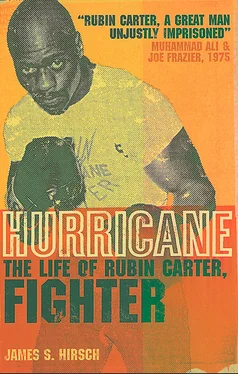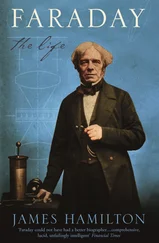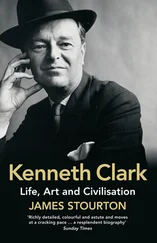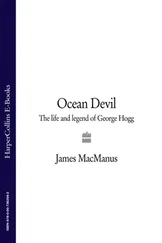Griffith was a native of the Virgin Islands who moved to New York when he was nineteen. His boss encouraged him to try his hand at boxing, and he was an instant success, winning the New York Golden Gloves. He turned professional at twenty. Griffith liked to crouch in the ring, stick his head in the other guy’s chest, and pound the midsection. He could also dance and jab, backpedal and attack; he never tired. And he was deadly. In a bout at Madison Square Garden on March 24, 1962, Griffith took on Benny “Kid” Paret for the third time in less than twelve months, the decisive match in a bitter war between the two men. Paret provoked Griffith at their weigh-in by calling him maricon , “faggot.” That night, Griffith was knocked down early, but he pinned Paret in the corner in the twelfth round and felled him with a torrent of angry punches, prompting Norman Mailer to write later: “He went down more slowly than any fighter had ever gone down, he went down like a large ship which turns on end and slides second by second into its grave. As he went down, the sound of Griffith’s punches echoed in the mind like a heavy ax in the distance chopping into a wet log.”
Paret was removed from the ring on a stretcher, lapsed into a coma, and died ten days later; he was twenty-five.
At the end of 1963, Griffith was the champion of the welterweight division (for boxers 147 pounds and under) and had been named Ring magazine’s Fighter of the Year with a record of thirty-eight wins and four losses. Now he wanted a shot at the middleweight crown (for boxers 160 pounds and under), and that led to his match with Carter.
Their bout was to take place in Pittsburgh’s Civic Arena on December 20. The two men were sparring partners and friends, but in the days leading up to the match, Carter launched a clever campaign to strike Griffith at his point of vulnerability: his pride. The idea was to provoke him before the fight so that he would abandon his strongest assets—his speed and stamina—and go for a quick knockout. Carter began planting newspaper stories that Griffith was going to run and hide in the ring and hope that Carter tired. In a joint television interview the day before the fight, the host asked Griffith if he dared to stand toe-to-toe with the Hurricane.
“I’m the welterweight champion of the world,” Griffith snapped. “I’ve never run from anyone before, and I’m not about to start with Mr. Hurricane Carter now!”
“Then I’m going to beat your brains in,” Carter shot back.
Griffith laughed in the face of Carter’s hard glare. “I’ve never been knocked out either,” Griffith said. “But if you don’t stop running off at the mouth, Mister Bad Rubin Hurricane Carter, I’m going to turn you into a gentle breeze and then knock you out besides.” Griffith was now seething, so Carter raised the temperature a little more.
“Knock me out!” Carter said, turning to the live audience. “If you even show up at the arena tomorrow night, that’ll be enough to knock me out! I oughta cloud up and rain all over you right here. You talk like a champ, but you fight like a woman who deep down wants to be raped!”
The audience, knowing what happened to Benny Paret, gasped. Griffith clenched his jaw. Carter had laid his trap.
The following night, the city’s steel plants and foundries spewed smoke into the frozen air. Inside the Civic Arena, Griffith’s mother was in the crowd, and the champion entered the ring as a confident 11–5 favorite. Griffith started out methodically, firing jabs, standing toe-to-toe, swapping punch for punch. He wanted to prove that he could take Carter’s best shots and win a slugfest. This was exactly what Carter had hoped for.
Carter popped him in the mouth with a stiff jab; Griffith responded with an equal jolt to Carter’s mouth. Carter pumped a jab to his forehead; Griffith fired one back on him. Carter backed up, looked at him, snorted, then raced in with a jab followed by a powerful left hook to the gut.
The air came out of Griffith, who tried to grab Carter, but Carter slipped away. “Naw-naw, sucker,” Carter mumbled through his mouthpiece. He drilled home another salvo of lefts and rights—“You gotta pay the Hurricane!” Carter yelled—then dropped Griffith with a left hook.
“One! … Two! … Three.”
The crowd was stunned into silence, then stood and cheered. Griffith staggered to his feet to beat the count, but he was now an easy target. Carter smashed left hooks to the body and devastating rights to the head. Griffith dropped to the canvas, badly hurt. He tried to stand but stumbled instead. The referee, Buck McTiernan, stepped in and stopped the fight. The time was two minutes and thirteen seconds into the first round. “A left hook sent Griffith on his way to dreamland!” the television announcer yelled.
Carter’s upset cemented his reputation as one of the most feared men in boxing. It also earned Carter a shot at the title the following year. But the Griffith fight marked the pinnacle of his boxing career. Carter lost his championship bout on December 16, 1964, to Joey Giardello, a rugged veteran whose first professional fight had been in 1948, in a controversial fifteen-round decision. Giardello’s face was puffed into a mask while Carter was unmarked, and a number of sportswriters who saw the fight thought Carter won. But challengers typically have to beat a champ decisively to win a decision, and Carter didn’t.
The bout occurred on December 16, 1964. The following year, Carter received another jolt—this time, political. He was invited to fight in Johannesburg, South Africa, a country about which he knew virtually nothing. He had never heard of Nelson Mandela or the African National Congress or even apartheid. But just as the Army exposed him to bigotry in the Deep South, boxing now put him in the midst of a more virulent racism. Arriving in Johannesburg a couple of weeks before his September 18 bout, he was guided around the city by Stephen Biko. In years to come, Biko would become the leader of the Black Consciousness movement, advocating black pride and empowerment, and would found the South African Students Organization. But in 1965, he was an eighteen-year-old student and fledgling political activist, and he gave Carter a quick education in black oppression. Walking through Johannesburg, the American’s roving eye glimpsed a tight-skirted white woman. “Whoa, man!” he said. Biko grabbed Carter’s arm. “You can’t say that. They’ll kill us! They’ll kill us!”
Racial strife was indeed high. The previous year, Nelson Mandela and other black leaders were handed life sentences for conspiring to overthrow the government. The ANC had been banned in 1961; but clandestine meetings were still being held, and Biko took Carter to some of these nocturnal gatherings. There he learned about black South Africans’ bloody struggle, dating almost two hundred years, for political independence. He also had his own encounter with the South African police. He was almost arrested one night for walking outside without a street pass.
The boxing match was against a cocky black fighter named Joe “Ax Killer” Ngidi who had a potent right hand. More than 30,000 fans packed into Wemberley Stadium on a sunny afternoon, and as Ngidi danced about the ring in a pre-bout warm up, Carter noticed that some of the fans were carrying spears.
“I don’t know what that means,” his advisor Elwood Tuck told him, “but get that sucker out of there quick.”
Carter was confident. South African boxers, he believed, viewed the sport as dignified and noble but lacked savagery. That shortcoming could not be applied to Carter, and even though he was a foreigner, his ferocity made him a crowd favorite in South Africa. When he KO’d “Ax Killer” Ngidi in the second round, fans stood on their feet, raised their spears and yelled, “ KAH-ter! KAH-ter! ” But after Carter reached his dressing room, he was pinned in by a mob of supporters, and the scene turned ugly. To leave the stadium, a battalion of gun-carrying Afrikaner cops formed a wedge and told Carter and his entourage to follow its lead. As they pushed through the crowd, a white officer pummeled several black fans. Carter, outraged, moved to strike the cop, but was blocked by one of his handlers and was once again reminded that such a move would ensure his own demise.
Читать дальше












